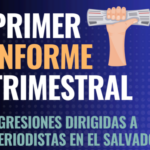September 17, 2024 – Timor –
Timor‑Leste police arrested Antonieta Kartono Martins, a reporter with Média Diligente Online, while she was covering an eviction operation against street vendors in Dili ahead of Pope Francis’s visit—a rare case of targeting a female journalist in the country. She was held for approximately four hours and released without charges, but the detention highlighted growing pressure on journalists covering public-interest events.
Simultaneously, Suzana Cardoso, a journalist from Média One Timor, had her camera confiscated and footage documenting the eviction operation deleted by security forces. Video evidence shows police and masked individuals using sticks and crowbars to dismantle stalls, then forcing Cardoso to erase her recordings—a clear attempt to suppress independent documentation. Other eyewitness accounts corroborate that government staff ordered her to delete files and present ID, creating an atmosphere of intimidation.
Reporters Without Borders (RSF) described the arrest as a “rare” but alarming instance of press repression, calling on Timorese authorities to reaffirm their commitment to media freedom. The International Federation of Journalists (IFJ) and the Timor-Leste Press Union (TLPU) strongly condemned the actions—detention, confiscation, and destruction of journalistic material—as blatant interference with public-interest reporting. The IFJ emphasized that journalists must be allowed to cover events freely and urged swift measures to protect media workers.
Women in Journalism also issued a joint statement condemning the incident, highlighting that such tactics—detaining a female journalist and erasing crucial footage—pose a direct threat to women’s press freedom in Timor‑Leste, a country previously known for its relatively liberal media environment.
This incident marks a worrying shift in the Southeast Asian nation, where press protections are generally strong but now face increasing erosion owing to legal intimidation, surveillance, and selective enforcement. RSF notes ongoing pressures, including police violence, summonses, and legal proceedings that collectively stifle independent journalism.
President José Ramos‑Horta and other senior officials publicly affirmed that hindering journalistic work is unacceptable and must not go unchallenged. Media outlets, civil-society groups, and international watchdogs are now urging Timor‑Leste to reinforce existing legal protections—including constitutional provisions safeguarding press freedom—and to hold state actors accountable for any abuses.
As the country prepares for future high-profile events, including international visits, authorities face mounting pressure to strike a balance between state interests and the public’s right to information. The treatment of Martins and Cardoso will be closely watched as a barometer for whether Timor‑Leste remains committed to preserving free, independent, and especially women-led journalism.





